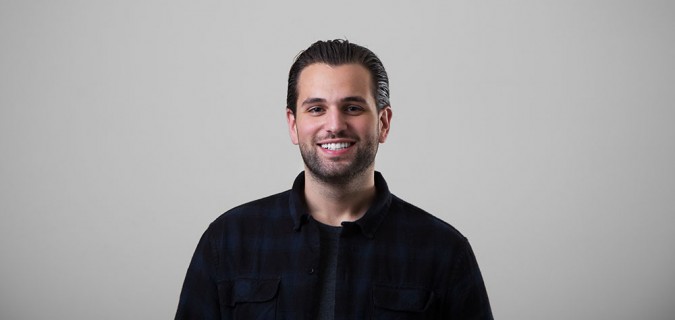Harry Hurst is the co-founder of Skurt, a mobile app disrupting the archaic rental car industry with the fastest, most convenient way to book a car and have it delivered right to you, wherever you are. Follow him @harryhur5t.
Who’s your hero? (In business, life, or both.)
My heroes are my two co-founders. Without them I would never have been able to realize my vision for Skurt, where we’re working toward making a huge impact on an archaic, consolidated process: renting cars. A lot of people have great ideas, but it takes much more than that to build a truly great company. The most successful companies were built on top of strong founding teams with the passion, drive and commitment to execute. It’s all in the execution.
What’s the single best piece of business advice that helped shape who you are as an entrepreneur today, and why?
Richard Branson once said that if you put your employees first, they will take care of the customers, who will in turn take care of the profits, which equals happy shareholders. I think that’s a great piece of advice and I’ve most definitely tried my best to implement this at Skurt through office perks, regular team-building activities and general inclusion of our employees in almost every aspect of the business, including but not limited to product and overall vision.
What’s the biggest mistake you ever made in your business, and what did you learn from it that others can learn from too?
When I was first growing my headhunting business, we scaled too quickly. We brought on some great clients and overzealously hired new employees to service the business, while generating new business. Seasonality kicked in and we were left with payroll that we couldn’t meet. We had to scale the business right back down and revert back to a lean growth strategy. This ultimately resulted in a lower top line, but significantly higher bottom line for the company. Increasing headcount too quickly may seem like a great idea on paper when you make fancy Excel spreadsheets coupled with wild assumptions. However, in reality, a calculated and lean approach usually wins.
What do you do during the first hour of your business day and why?
The first hour of my business day is usually dedicated to going for a walk while catching up with my family and friends back home in London. They’re eight hours ahead of me, so when I wake up they’re already well into their day. It’s very important to dedicate time to keeping in touch with loved ones and friends back home. It keeps you grounded and focused, knowing that you have support right from your roots.
What’s your best financial/cash-flow related tip for entrepreneurs just getting started?
My advice here would be to build a detailed financial model from day one. Rather than implementing “best-case” optimistic assumptions, put in realistic ones and see if you have a business. I think that for VCs, there’s going to be a paradigm shift toward investing more in companies that actually make money (as opposed to growth oriented companies with scarily high negative contribution margins). Make sure you can demonstrate a clear and realistic path to profitability, even at an early stage in your journey.
Quick: What’s ONE thing you recommend ALL aspiring or current entrepreneurs do right now to take their biz to the next level?
Invest time into your network. It’s truly amazing how much can be achieved through simply “knowing someone who knows someone who can make an intro.” There are so many incredible organizations that afford entrepreneurs the opportunity to grow their network with like-minded individuals.
What’s your definition of success? How will you know when you’ve finally “succeeded” in your business?
My definition of success is freedom — the freedom to work on what I love, the freedom to travel the world, and most importantly the freedom to spend a lot of time with my family and friends. In order to achieve this, you first need financial freedom. In order to achieve that as an entrepreneur, you need to successfully grow a business and have an eventual exit. I’ll know I’ve succeeded when I can wake up in the morning and ask myself, “What would I like to do today?” rather than looking at my calendar and asking myself, “What do I have to do today?” With that being said, the beauty of being an ambitious entrepreneur is that the things you have to do every day are for the most part, the things you love doing.













